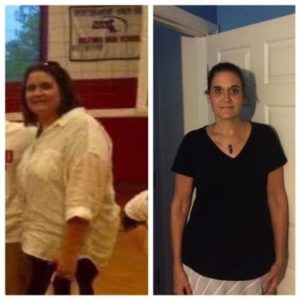Wide Awake at 2am!
Sleep disorders and insomnia are in the top 5 complaints Americans (especially women over the age of 40) have to their friends, family and health care providers. We could simply tell you which supplements or over the counter pills to try or to ‘relax’, ‘get exercise’, ‘journal’, ‘try yoga or acupuncture or reiki’ but that’s not telling you why your body is sending out red flags (ie: the dashboard light is on- don’t just cut the wire and keep driving).
Although sleep is one of the major 5 tenements for optimal health, Americans simply don’t prioritize it and often disregard sleep issues.
Sleep deprivation has been shown to lower leptin (an appetite-suppressing hormone produced by fat cells, which is normally produced in abundance at night) and increase ghrelin, (a hormone released by the stomach that stimulates hunger, which is also secreted at night but normally in lesser amounts)… ie: inability to lose weight.
The process of sleep is a multi-level, chemical process and one that we are going to explain as simply as possible. Although it’s lots of potentially big sciencey words that are confusing and overwhelming (which we love!), it’s my intent to break it down for my readers without putting you to sleep!
My hope is this will offer fodder to find the ROOT CAUSE of sleep obstacles. As with any and all symptoms (red flags) your body sends – there is not one ‘system’ (ie: respiratory, cardiac, gastroenteric, etc) – everything is interconnected and everything requires FOOD FIRST.
Here goes….
As with any function in the body, quality sleep requires quality nutrients and many ingredients. Sleep disorders may be caused by a single missing ‘ingredient’ or a combiination of missing ‘ingredients’ of the ‘cake recipe of sleep’.
Sleep Recipe:
Ingredients:
Tryptophan –> 5htp –> serotonin –> Acetyl-serotonin –> methionine –> SAMe
GABA
Magnesium
B vitamins
Cooking instructions:
Tryptophan
Tryptophan is an amino acid made from proteins in the body by digesting and ABSORBING nutrients from foods like cottage cheese, brown rice, avocados, bananas, walnuts, tomatoes, soy protein, meat and turkey. In order to absorb all nutrients, we need adequate stomach acid. As depicted in the graph, stomach acid declines drastically with age. (*by the way you need optimal levels of zinc for the B6 conversion to make tryptophan work).
5htp
Tryptophan is converted into 5htp. High levels of Copper will inhibit this conversion.
Serotonin
5htp is converted into Serotonin in the GUT with the help of B6 (Pyroxidine – 5 – phosphate – again see above and zinc). Acetyl-Serotonin is an active form of neurotransmitter which many know as the ‘mood’ stabilizer.
Acetyl-Serotonin
Acetyl-Serotonin is converted into melatonin in the PINEAL GLAND (located in your forehead between your eyebrows) & RETINA with the help of B5 (panthoteric acid). Light (especially technology lighting) prohibits this action. Melatonin produces relaxation. Magnesium is required for melatonin production. Magnesium deficiency is at about 75% for Americans due to our diet and the mineral depleted soil our food is grown in.
B5 & B6 VITAMINS
B5 & B6 vitamins are the facilitators for conversion to Acetyl-Serotonin and Melatonin.
Methionine
The next step requires methionine (which requires B9 – aka folate). Methionine, like Tryptophan, is an ‘essential’ amino acid which means you must INGEST through your diet because the body can’t produce it on it’s own. Good food sources of methionine include: Almonds, brazil nuts, broccoli, chickpea, beans, eggs, fish, garlic, lentils, meat, oats, onions, soybean, seed, and yogurt.
SAMe
Methionine is converted into SAMe (pronounced “sammy”)– aka S-adenosylmethionine. And guess what… like stomach acid; SAMe levels decrease with age.
GABA
GABA (aka gamma-aminobutyric acid) is yet another amino acid. It is an adrenaline (excitement) neutralizing neurotransmitter in the brain which helps stimulate relaxation and sleep by allowing a calming effect.
High levels of Human Growth Hormone (HGH) levels are needed to stimulate GABA.
Aging trends continued… HGH drops after the age of 40 which leads to interrupted sleep cycles and sleep disruptions. Diet, prolonged stress, and genetics have much to do with GABA deficiencies.
Roadblocks for sleep
- B vitamins are necessary for many of the chemical conversions necessary for sleep. B vitamins are fat soluble (need fat and an optimal digestive system) to be absorbed
- If there is insufficient hydrochloric acid from aging, medications (such as Pepcid, Zantac, Prilosec, etc), or by undiagnosed and undertreated H-Pylori infection we will absorb less. By the way, if you have heartburn – please ask your health provider for an H-Pylori blood test
- A healthy gut is not only necessary for B vitamin absorption, it’s also a requirement for serotonin production. 90% of serotonin is made in the gut – not in the head. Therefore, a person with a damaged gut (from food sensitivities, candida, infections, or lack of digestive enzymes and probiotic) or one who has IBS or constipation will obviously have impaired conversion
- Excess & elevated cortisol suppresses serotonin and depletes GABA
- Plant based diets tend to have higher copper. Those who are zinc deficient will have elevated copper. Elevated copper interrupts Tryptophan conversion into 5htp
It’s very easy to ask for copper and zinc levels from your health provider.
- In order to maintain “normal” cortisol levels, you need to do is to get a minimum of seven to eight hours sleep each night. Eating refined foods and sugars, prolonged physical (excessive exercise, food sensitivities, infections, and go-go-go-go lifestyle) and/or mental stressors also max out cortisol
- Low serotonin doesn’t allow for melatonin to be made
- Eating the typical American diet high in processed carbohydrates and sugar causes elevated levels of glucose which doesn’t allow cortisol to drop at night when sleeping
- If you watch tv, are on your computer, read on your kindle or perusing social media on your iPhone until just before bed… you are not converting Acetyl-Serotonin into melatonin
Do a few less winks really matter?
Besides being responsible for giving us focus, energy, and patience, sleep ranks with diet and regular exercise as an essential component 4 Better Health. Chronic lack of sleep is now regarded as a health hazard and has been associated with all chronic conditions. Lack of sleep lowers immunity increasing susceptibility to infections. At night, during the early stages of sleep, different types of immune cells peak (T helper cells and antigen presenting cells for those nerds in the crowd), prolactin and growth hormone peak, and cortisol and catecholamine productions drops. All of these changes make for an environment that supports inflammation. Less sleep impairs glucose tolerance, causes low morning cortisol levels, and increases carbohydrate cravings. Lack of sleep can also elevate circulating estrogen levels, upset hormonal balance, and slow healing.
Sweet baby cheetas! Now what?
You can and will sleep again if you take a step by step approach to repair your amino acid, neurotransmitter and cortisol pathways.
- Food First!
Eat cleaner. 50% veggies, 30% proteins, 15% fruit, 15% whole grains (not processed carbs) & focus on the foods mentioned above. Eat a low glycemic diet. Low-to-no sugar and sugar replacers (ie; agave, honey, maple syrup, etc) - Fix your Gut!
Ensure you have plenty of stomach acid and a healthy gut through specialized testing. Poop daily - Nutrients Third! Get your B’s, Zinc, Copper and Magnesium levels checked – OPTIMAL LEVELS.
- Drop your Cortisol!
De-stress! Any way you can – pay someone to relax you or find an app for it! Exercise appropriately. More is not always better and often those who are having trouble with insomnia need to zone it down to light yoga or walking - Support Conversion!
Take supplements with the necessary conversion support as mentioned above with the help of a health coach, naturopath or a health care provider who understands side effects and dosages. Best-Rest by Pure Encapsulations is my favorite sleep supp

 “Finding 4 Better Health was a blessing after many years of traditional medicinal doctors /Endocrinologists being unable to get me to feeling optimal. Dr Zub listened to me, truly heard me & devised a proactive plan for me to have a better life. My body is still healing, but I am no longer barely functioning to get through my daily life. I can exercise again without being completely depleted of energy. I have been able to successfully lose 20 pounds. I feel I can always contact Dr. Zub with any questions or concerns I may have. We continue to work together to find the right course of action for my health. I can’t say enough great things about their practice.”
“Finding 4 Better Health was a blessing after many years of traditional medicinal doctors /Endocrinologists being unable to get me to feeling optimal. Dr Zub listened to me, truly heard me & devised a proactive plan for me to have a better life. My body is still healing, but I am no longer barely functioning to get through my daily life. I can exercise again without being completely depleted of energy. I have been able to successfully lose 20 pounds. I feel I can always contact Dr. Zub with any questions or concerns I may have. We continue to work together to find the right course of action for my health. I can’t say enough great things about their practice.”

